| |
English Parts of Speech
nouns, verbs, adjectives, adverbs, interjections,
conjunctions/connectives
Nouns What is a noun?
Person, Place, or Thing. It answers the questions, Who? or What? The word
"noun" means "name" (from French & Latin word
"nom"). It is the 'name' or 'label' that we give to a person,
place, or thing. Kinds
of nouns: There are three main kinds of nouns: common nouns,
proper nouns, and pronouns. Examples:
| category |
common nouns |
proper nouns |
subject
pronouns |
object pronouns |
| person |
teacher |
Leon |
I |
me |
| person |
student |
Titus |
he |
him |
| person |
director |
Mr Jones |
she |
her |
| place |
beach |
Willard
Bay |
it |
it |
| place |
school |
Granite |
it |
it |
| place |
city |
Salt Lake
City |
it |
it |
| thing |
pencil |
x |
it |
it |
| thing |
notebook |
x |
it |
it |
| thing |
textbook |
x |
it |
it |
Verbs What
is a verb? The verb connects the subject with the rest of the
sentence. It is sometimes an action, sometimes a reception, sometimes a
link, and sometimes a helper to the main verb. Generally a verb
is an action word, but that's not always true. - There
are active verbs (action), passive verbs (acted upon), linking verbs (be), and
modal verbs (helping verbs). Examples:
| Tense |
active
verbs |
passive
verbs |
linking
verbs |
modal
verbs
(helping verbs) |
 |
 |
 |
 |
 |
| Tense |
active
verbs |
passive
verbs |
linking
verbs |
modal
verbs
(
helping verbs) |
present
tense
(habit tense) |
throw
throws |
is
thrown |
am,
are
is |
can |
present
tense sentence
(habit tense sentence) |
I throw
darts often. He throws a
dart often. |
The
dart is thrown. |
I am
a dart player.
It is a dart. |
I can
throw a dart.
It can be thrown. |
| Tense |
active
verbs |
passive
verbs |
linking
verbs |
modal
verbs
(
helping verbs) |
| simple
past tense |
threw |
was
thrown |
was |
could |
| simple
past tense sentence |
I threw
a dart. |
The
dart was thrown. |
I was
a dart player.
It was a dart. |
I could
throw a dart.
The dart could be thrown. |
| Tense |
active
verbs |
passive
verbs |
linking
verbs |
modal
verbs
(
helping verbs) |
| future
tense |
will
throw |
will
be thrown |
will
be |
will
be able |
| future
tense sentence |
I will
throw a dart. |
The
dart will be thrown. |
I will
be a dart player.
It will be a dart. |
I will
be able to throw a dart.
It will be able to be thrown. |
| Tense |
active
verbs |
passive
verbs |
linking
verbs |
modal
verbs
(
helping verbs) |
| perfect tense |
have
thrown |
has
been thrown |
have
been |
could
have + pp |
| perfect
sentence |
I have
thrown a dart. |
The
dart has been thrown. |
I have
been a dart player.
It has been a dart. |
I could
have thrown a dart player.
The dart could have been thrown. |
| Tense |
active
verbs |
passive
verbs |
linking
verbs |
modal
verbs
(
helping verbs) |
| past
perfect tense |
had
thrown |
had
been thrown |
had
been |
had
been able |
| past
perfect sentence |
I had
thrown a dart. |
The
dart had been thrown. |
I had
been a dart player.
It had been a dart. |
I had
been able to throw a dart.
The dart had been able to have been
thrown. |
And there is a very special verb in a class all its own: the
existential verb: There is / There are.
"There is" / "There are" = байх (in Mongolian) &
있다 (in Korean)
Examples: There is some money. There are
some monkeys.
Adjectives
What is an adjective?
An adjective describes a noun. It answer the question:
"What kind of ______?"
There are different structures for adjectives.
Sample adjectives are blue.
| ~y |
~ly |
~al |
~ish |
~ive |
~ian/an |
| happy
camper |
lovely
day |
magical
memory |
boyish
girl |
creative
students |
Mongolian
person |
| fishy
story |
manly
job |
economical
problem |
foolish
wolf |
selective
service |
vegetarian
diet |
| girly
boy |
womanly
job |
political
party |
British
English |
inventive
genius |
Canadian
woman |
| picky
person |
friendly
fox |
digital
clock |
squeamish
girl |
imaginative
child |
American
man |
| tricky
fox |
prickly
pear |
critical
condition |
Turkish
delight |
detective
story |
agrarian
society |
| dirty
dog |
sickly
child |
chemical
solution |
Finnish
people |
protective
parent |
Libertarian
party |
| muddy
river |
~ous |
physical
science |
bluish
black |
elective
class |
Republican
party |
| hairy
arms |
ferocious
feline |
logical
conclusion |
reddish
brown |
connective
word |
African
animals |
| starry
night |
vicious
Vortimort |
whimsical
wizard |
purplish
red |
destructive
monster |
Australian
coast |
| foggy day |
delicious
dessert |
cyclical
pattern |
greenish
blue |
constructive
person |
Russian
Roulette |
| mushy pumpkin |
heinous
crime |
cylindrical
shape |
bluish
green |
attractive
woman |
European
food |
| fuzzy photo |
deciduous
tree |
pyramidal
shape |
pinkish
red |
interactive
game |
Siberian
Stinging Nettle |
| squishy
sponge |
melodious
music |
mortal
human |
reddish
pink |
predictive
words |
Arabian
camel |
| scary movie |
courteous
child |
immortal
monster |
yellowish
green |
objective
view |
Bactrian
camel |
ACTIVE and PASSIVE adjectives.
Sample adjectives are blue:
| ~ing
(active adjective) |
~ed
(passive adjective) |
| loving
person = a person who gives love |
loved
person = a person who receives love |
| killing
wolf = a wolf that kills |
killed
lamb = a lamb that was killed (by the wolf) |
| studying
child = a child who studies |
studied
material = material that was studied (by the child) |
| teaching
job = a job that requires teaching |
taught
material = lesson material that was taught (by a
teacher) |
| leaking
roof = a roof that is leaking |
leaked
information = information that was leaked (by an informant) |
| swimming
pool = a pool for swimming |
swum-in
pool |
| walking
stick = a stick for walking |
walked
path = a path that has been walked upon |
| sleeping
bag = a bag for sleeping (camping) |
slept-in
bag |
| weeping
child = a child who is weeping |
wept
tears = tears that have been wept |
| talking
students = students that are talking |
discussed
topic = a topic that has been discussed |
| growing boy
= a boy who is growing |
overgrown
path = a path that is overgrown (by plants) |
enchanting woman
= a woman that does chants (magic spells)
(Also, said of a beautiful woman) |
enchanted
forest = a forest that has a magic spell on
it |
| charming
woman = a woman who has a good personality |
charmed
man = man who was charmed by a woman's
personality |
Also, there are...
comparative adjectives & superlative
adjectives.
Sample adjectives are blue.
| comparative
adjectives |
superlative
adjectives |
| darker
days |
darkest
days |
| brighter
star |
brightest
star |
| lighter
colour |
lightest
colour |
| muddier
puddle |
muddiest
puddle |
| noisier
pupil |
noisiest
pupil |
And, there are...
"~less" Adjectives (Meaning:
little or
none)
&
"~ful" Adjectives (Meaning:
a lot)
Sample adjectives are blue.
| ~less |
~ful |
| merciless = having
very little (or no) mercy |
merciful = full of
mercy |
| hopeless = having
very little (or no) hope |
hopeful = full of
hope |
| helpless = cannot
help one's self |
helpful = can help
one's self AND helps others as well |
| sinless = having
no sins |
sinful = having a
lot of sins |
| colourless =
having very little (or no) colour |
colourful = full
of colours |
| sorrowless =
having very little (or no) sorrow (sadness) |
sorrowful = full
of sorrow (sadness) |
| joyless = having
very little (or no) joy (happiness) |
joyful = full of
joy (happiness) |
Adverbs
What is an adverb?
An adverb is a word that modifies a verb, an adjective, or a
whole sentence. It answers the questions: How? How
often? and Where? Sample
adverbs are in blue:
| Adverbs of How? |
Sample sentences
(of
verb adverb) |
Sample sentences
(of
sentence adverb) |
| softly |
She sang softly. |
Softly,
she did sing. |
| loudly |
She sang loudly. |
Loudly,
she did sing. |
| like a bird |
She sang like
a bird. |
Like a bird,
she sang. |
| beautifully |
She sang beautifully. |
Beautifully,
she did sing. |
| Adverbs of
frequency (How often?) |
Sample Sentence
w/ verb adverb |
| always |
I
always eat
dinner. |
| frequently |
I
frequently eat
school lunch. |
| often |
We
often go
out to eat. |
| sometimes |
We
sometimes eat
Korean food. |
| seldom |
We
seldom eat
meat. |
| never |
We
never eat
maggots. |
Adverbs of
frequency
(How often?) |
Sample Sentence
1
(as sentence adverbs) |
Sample Sentence
2
(as sentence adverbs) |
| always |
Always
do I eat dinner. |
I eat dinner
always. |
| frequently |
Frequently
do I eat school lunch. |
I eat school lunch
frequently. |
| often |
Often
do we eat out. |
We eat out
often. |
| sometimes |
Sometimes
we eat Korean food. |
We eat Korean food
sometimes. |
| seldom |
Seldom
do we eat meat. |
We eat meat, seldom. |
| never |
Never
do we eat maggots. |
We eat maggots,
never. |
NOTE:
Prepositional phrases are
adverb phrases of where.
| Adverbs of
location (Where?) |
Sample
sentences
(with verb adverb) |
Sample
sentences
(with sentence adverb) |
| home |
I went home. |
To my home,
I went. |
| to school |
We went to
school. |
To school,
we went. |
| in the playground |
We played in
the playground. |
In the playground,
we played. |
| everywhere |
She sings
everywhere. |
Everywhere,
she sings. |
| anywhere |
I don't sing
anywhere. |
X |
| nowhere |
There's nowhere
to go. |
Nowhere,
is there a place to go. |
Interjections
I discuss interjections on my onomatopoeia
page
| |

English |
|

Spanish
|

Korean |

Mongolian |

Chinese |
|
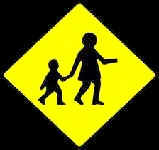
Parents of
Homeschool
|
|

Halloween
|
|

Thanksgiving
|
|
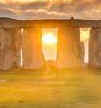
Winter Solstice
|
|

Christmas
|
|

New Years
|
|

Chinese Lunar
New Year
|
|

Valentine's
|
|

|
|
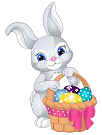
Easter
|
|

All About
Dr. Seuss
|
|
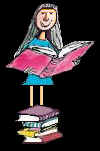
Roald Dahl
|
|
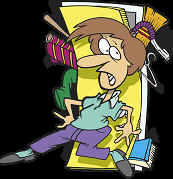
Prepper's
Pen |
|

Ways to
Help
Leon's Planet
|
|